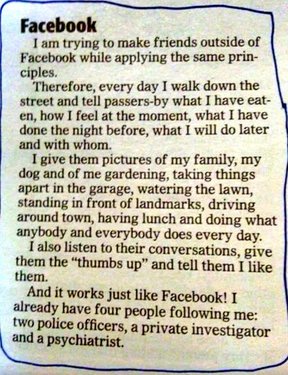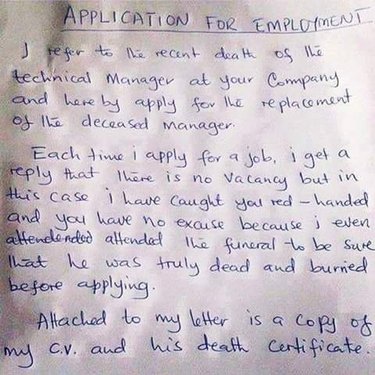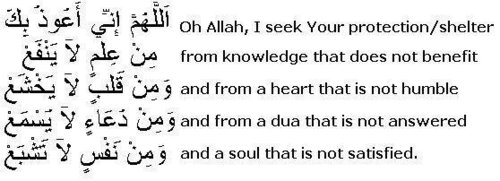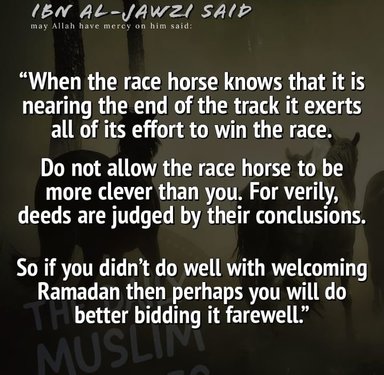-
Posts
1,759 -
Joined
-
Last visited
-
Days Won
106
Content Type
Profiles
Forums
Events
Everything posted by Bint e Aisha
-
-
-
-
-
(٥) علامہ ابن الوزير رحمہ اللہ لکھتے ہیں "امت کا اجماع ہے کہ رسول اللہﷺ کے بعد وحی کا سلسلہ منقطع ہو چکا ہے اور آپﷺ کی شریعت سے معارضہ کی گنجائش باقی نہیں رہی، اب جو اس قسم کا دعوی کرتا ہے یا شریعت کے کسی جز میں تغیر و تبدل کی بات کرتا ہے، تو وہ بالاجماع کافر ہے۔" (ایثار الحق : ٧٢) بحوالہ :ختم نبوت للشیخ غلام مصطفی ظہیر امن پوری حفظہ اللہ
-
{مَا کَانَ مُحَمَّدٌ اَبَآ اَحَدٍ مِّن رِّجَالِکُم وَلٰکِن رَّسُولَ اللّٰہِ وَخَاتَمَ النَّبِیّٖنَ وَکَانَ اللّٰہُ بِکُلِّ شَیئٍ عَلِیمَا } علامہ ابن کثیرؒ اس آیت کریمہ کی تفسیر میں تحریر فرماتے ہیں : ’’یہ آیت کریمہ نص ہے اس بارے میں کہ آپ کے بعد کوئی نبی نہیں، اور جب آپ کے بعد کوئی نبی نہیں تو کو ئی رسول بدرجۂ اولی نہیں ہو گا، اس لئے کہ مقام رسالت مقام نبوت سے زیادہ خاص ہے، ہررسول نبی ہوتا ہے لیکن ہر نبی رسول نہیں ہوتا ‘‘ (ابن کثیر ۳/۴۹۳)
-
جوہری لکھتے ہیں : ’’ختمت الشیء کا مطلب ہے کسی چیز پر مہر لگانا تو وہ شے مختوم ہے، ختمت القرآن، یعنی میں قرآن کے آخر کو پہنچ گیا، اختتمت، یہ افتتحت کی ضد ہے جس کے معنی آغاز کرنے کے ہیں، خاتمۃ الشی ء کا مطلب ہے آخر شے اور محمدﷺ خاتم الانبیاء ؑ ہیں یعنی آخری نبی ہیں ‘‘ (الصحاح للجوہری ج۵ص ۱۹۔ ۸)
-
علامہ ابن کثیر رحمہ اللہ سورۂ مائدہ کی آیت (۳ ) کے ضمن میں تحریر فرماتے ہیں :۔ ’’اس امت پر اللہ تعالی کی یہ بڑی نعمت ہے کہ اس نے اس کے لیے دین کو مکمل کر دیا، اب نہ اسے کسی نئے دین کی ضرورت ہے اور نہ کسی نئے نبی کی، یہی وجہ ہے کہ اللہ تعالی نے آپﷺ کو خاتم الانبیاء بنا دیا اور آپ کو تمام جن وانس کی طرف مبعوث فرمایا‘‘ (ابن کثیر ۲ /۱۲)
-
امام لغت راغب اصفہانی لفظ ’’خاتم‘‘ کی وضاحت کے ضمن میں تحریر فرماتے ہیں : [وخاتم النبیین۔ لأنہ ختم النبوۃ۔ ای تممھا بمجیۂ] ’’اور خاتم النبیین اس لئے کہا گیا کہ آپ نے نبوت کو ختم کر دیا یعنی اپنی آمدکے ذریعہ اس کی تکمیل فرما دی‘‘ (مفردات القرآن ص۱۴۲، ۱۴۳)
-
سلسلہ مواعظِ رشید نمبر 5 علم کے مطابق عمل کیوں نہیں ہوتا ؟ قسط نمبر 4 9⃣ رسول الله ﷺ حضرت عائشہ رضی اللہ تعالٰی عنهاکو ارشاد فرماتے ہیں: ایاک ومجالسة الأغنياء- یہ تاثیر صحبت نص صریح ہے- 🔟 رسول الله ﷺ نے فرمایا کہ میرے اصحاب میں سے سابقین اولین کے برابر وہ اصحاب نہیں ہو سکتے جو بعد میں ایمان لائے (یعنی بیعت رضوان کے بعد) اور پہلوں نے اگر اللہ کی راہ میں ایک مد (٥ء ٨٨٤ گرام) جو خرچ کئے بعد کے اصحاب جبل احد کے برابر سونا خرچ کریں تو اس کے نصف کے برابر بهی نہیں ہو سکتا- یہ قصہ اس طرح پیش آیا کہ ایک دفعہ حضرت خالد بن ولید رضی اللہ عنہ اور حضرت عبد الرحمن بن عوف رضی اللہ تعالٰی عنہ میں کسی بات کر کچھ تیز گفتگو ہو گئی- جب رسول اللہ ﷺ کو اس کی اطلاع ہوئی تو رسول اللہ ﷺ نے حضرت خالد بن ولید رضی اللہ تعالٰی عنہ کو تنبیہ فرمائی- مطلب یہ ہے کہ جو زیادہ رسول اللہ ﷺ کی صحبت میں رہے اور جنہوں نے پہلے اسلام قبول کیا ان حضرات صحابہ کا مرتبہ بعد والے حضرات صحابہ سے بہرحال افضل ہے- کسی نے امام مالک رحمہ اللہ تعالیٰ سے سوال کیا کہ حضرت معاویہ رضی اللہ عنہ اور حضرت عمر بن عبدالعزیز رحمہ اللہ تعالیٰ دونوں میں سے کون افضل ہے؟ حضرت امام مالک رحمہ اللہ تعالیٰ یہ سن کر رو پڑے اور فرمایا کہ یہ سوال ذہن میں آیا ہی کیسے کہ ایک صحابی کے ساتھ کسی غیر صحابی کو موازنہ کیا جائے پهر فرمایا کہ حضرت معاویہ رضی اللہ تعالٰی عنہ رسول اللہ ﷺ کے ساتھ سفر جہاد میں جس گهوڑے پر سوار ہوتے تهے اس کی ناک میں جو راستے کا غبار پہنچا، حضرت عمر بن عبدالعزیز اس غبار کی برابری بهی نہیں کر سکتے چہ جائیکہ ان کا مقابلہ ایک صحابی حضرت معاویہ رضی اللہ تعالٰی عنہ سے کیا جائے- کیونکہ حضرت عمر بن عبدالعزیز رحمہ اللہ تعالیٰ وہ آنکهیں کہاں سے لائیں گے جو جمال نبوت کا دیدار کرتی تهیں- یہاں پر یہ بات یاد رکھنا ضروری ہے کہ حضرت عمر بن عبدالعزیز رحمہ اللہ تعالیٰ بڑے جلیل القدر تابعی ہیں اور عمر ثانی کے لقب سے مشہور ہیں- اور بعض مؤرخین نے ان کے دور خلافت کو بهی خلافت راشدہ میں شمار کیا ہے- 1⃣1⃣ رسول الله ﷺ نے فرمایا: (صلوا کما رأیتمونی اصلی) ترجمہ: "اس طرح نماز پڑھو جس طرح مجهے پڑهتا ہوا دیکھتے ہو-" ظاہر ہے کہ آپ ﷺ کے ارشاد پر اسی وقت عمل ہو سکتا ہے جب کوئی آپ ﷺ کی صحبت میں رہے اور آپ ﷺ کو نماز پڑهتے ہوئے دیکهے اور پهر اس جیسی نماز پڑهنے کی کوشش کرے حالانکہ جہاں تک احکام کا سوال ہے رسول اللہ ﷺ نے تمام ارکان اسلام نماز، زکوۃ، روزہ، حج وغیرہ کل احکام تفصیل سے حضرات صحابہ کرام رضی اللہ عنهم کو بتا دیئے تھے- اگر رسول اللہ ﷺ یہ فرماتے کہ میں نے تمہیں جس طرح بتا دیا ہے اس طرح سے نماز پڑهو تو بالکل بجا ہو سکتا تها -لیکن رسول الله ﷺ کا یہ فرمانا کہ مجهے دیکھو، میں کس طرح نماز پڑهتا ہوں پهر اسی طرح نماز پڑهنے کی کوشش کرو صاف طور پر صحبت کی اہمیت کو بتا رہا ہے- صحابہ کرام رضی اللہ عنهم رسول اللہ ﷺ کی ایک ایک بات کو نہایت غور سے دیکهتے اور پهر اس کی ہو بہو نقل اتارنے کی کوشش کرتے- حضرت عثمان، حضرت علی اور حضرت ابن عباس رضی اللہ عنهم کو جب وضوء کا سکهانا مقصود ہوتا تو فرماتے میں تمہیں ایسا وضوء کرنا نہ سیکها دوں جیسے رسول اللہ ﷺ وضوء فرماتے تهے- پهر پانی لے کر وضوء کر کے دکهاتے اور فرماتے کہ میرے محبوب ﷺ اس طرح وضوء فرماتے تهے، ورنہ وہ چاہتے تو زبانی بهی کہہ سکتے تهے کہ یوں کرو پهر یوں کرو- نہیں بلکہ خود کر کے دکهایا تا کہ کسی شک و شبہہ کی گنجائش نہ رہے- (جاری ہے)
-
سلسلہ مواعظِ رشید نمبر 5 علم کے مطابق عمل کیوں نہیں ہوتا قسط نمبر 3 2⃣( واصبر نفسک مع الذین یدعون ربهم بالغدوة والعشی یریدون وجهه ولا تعد عیناک عنهم) (١٨.٢٨) ترجمہ : "اور آپ خود کو ان لوگوں کے ساتھ مقید رکها کیجیے جو صبح و شام (یعنی علی الدوام) اپنے رب کی عبادک محض اس کی راضا جوئی کے لیے کرتے ہیں-" صبر کے معنی ہیں باندھ کر رکهنا، مقید رکهنا- رسول الله ﷺ کو ارشاد ہو رہا ہے کہ اپنے آپ کو اصحاب رضی اللہ عنهم کی تربیت کی خاطر مقید رکهیں ان کو اپنی صحبت بابرکت سے مستفیض ہونے کا موقع دیں تا کہ لوگ دین حاصل کر سکیں اور نبوت کے انوار و برکات سے اپنے دلوں کو مجلی کر سکیں - علم کتابوں اور رسالوں کی مدد سے بهی حاصل ہوتا سکتا ہے لیکن اس پر عمل جب ہی ہو سکتا ہے کہ کسی باعمل کے پاس بیٹھ کر دیکها جائے - یہاں پر ایک نکتہ یہ بهی معلوم ہوا کہ اہل اللہ کی پہچان ایک یہ بهی ہے کہ ان کا دل حقیقت میں لوگوں میں بیٹھنے سے خوش نہیں ہوتا ان کو تو بس خلوت محبوب ہوتی ہے کہ ذرا موقع ملے اور وہ اپنے محبوب حقیقی سے لو لگائیں لیکن جب اللہ تبارک و تعالیٰ کا حکم ہوتا ہے کہ مخلوق کو فائدہ پہنچاؤ تو وہ مجبوراً باامر الٰہی اس کام پر آمادہ ہوتے ہیں اور حقیقت میں ان کا میلان خلوت گزینی ہی کی طرف ہوتا ہے تا کہ وہ زیادہ سے زیادہ محبوب حقیقی کے جلوہ سے اپنی آنکهیں ٹهنڈی کریں -لیکن جب محبوب حقیقی حکم فرما دیتے ہیں کہ اب ان کے جمال کو آئینہ میں دیکهیں تو اہل اللہ اہل دنیا کی اصلاح کی طرف متوجہ ہوتے ہیں- 3⃣ اهدنا الصراط المستقيم کی تفسیر میں فرمایا : صراط الذین أنعمت علیهم، اس سے ثابت ہوا کہ منعم علیهم بندوں کی مصاحبت سے صراط مستقیم پر چلنے کی توفیق ہوتی ہے- 4⃣( ومن یکن الشیطن له قرینا فساء قرینا )(٤-٣٨) اور (یویلتی لیتنی لم اتخذ فلانا خلیلا )( ٤-٣٨) سے ثابت ہوا کہ صحبت بدکا اثر ہوتا ہے- 5⃣ انها کانت من قوم کفرین (٢٧-٤٣) سے یہ بتانا مقصود ہے کہ ملکئہ سبا کفار کے ماحول میں رہنے کہ وجہ سے کفر میں مبتلا تھی- 6⃣ (یلیتنی اتخذت مع الرسول سبیلا) (٢٥-٢٧) *"کاش میں رسول کے ساتھ ہو کر اللہ تبارک و تعالیٰ کا راستہ پکڑ لیتا-"* اس میں صحبت رسول اللہ ﷺ کا اثر بتایا گیا ہے- 7⃣ جب رسول اللہ ﷺ کی بعثت ہوئی اور آپ ﷺ نے نبوت کا اعلان کر کے تبلیغ کی ابتداء فرمائی تو کفار نے یہ اعتراض کیا کہ یہ ہمارے جیسے بشر ہیں، رسول تو کوئی فرشتہ ہونا چاہیے تها اور یہ کہ قرآن دفعتاً لکھا لکهایا ہم پر نازل ہوجاتا- اور ہم خود پڑھ کر اس کو سمجھ لیتے- اللہ تبارک و تعالیٰ کے دست قدرت سے بعید نہ تها کہ وہ اسی طرح کر دیتے کہ ایک فرشتہ کو رسول بنا کر بهیج دیتے اور ایک کتاب لکهی لکهائی نازل فرما دیتے تا کہ ان کفار کے لیے حجت پوری ہوجاتی اور ہو سکتا تها کہ ان کا یہ مطالبہ پورا ہوجانے پر کچھ لوگ مسلمان بهی ہو جاتے لیکن اللہ تبارک و تعالیٰ کی حکمت اعلیٰ اور اس کی انسانی فطرت سے واقفیت خود انسانوں سے بهی زیادہ گہری ہے اس لیے اس نے ایک بشر کو رسول کی صورت میں مبعوث فرمایا تا کہ لوگ یہ نہ کہہ سکیں کہ ہم تو اس بار شریعت کے متحمل نہیں ہو سکتے کیونکہ ہم فرشتوں کی طرح نہیں ہیں- اس کے علاوہ انسان کسی انسان ہی کی صحبت میں کچھ سیکھ سکتا ہے-اس لیے انسانوں کی ہدایت کے لیے انسانوں ہی کو رسول بنا کر مبعوث کیا جاتا رہا- 8⃣ حدیث میں اچهی صحبت کے فائدے اور بری صحبت کے نقصان کو ایک عجیب مثال سے سمجهایا گیا ہے: ( عن ابی موسی رضی اللہ عنہ عن النبی ﷺ قال مثل الجلیس الصالح والسوء کحامل المسک ونافع الکیر فحامل المسک اما ان یحذیک واما ان تبتاع منه عاما ان تجد منه ریحا طیبة ونافع الکیر اما ان یحرق ثیابک واما ان تجد ریحا خبیثة ، رواہ البخاري وفی روایة یحرق بدنک او ثیابک) #_ترجمہ : "رسول الله ﷺ نے فرمایا صحبت صالح کی مثال ایسی ہے جیسے مشک والے کی صحبت، وہ تجهے ہدیہ دے دے گا یا تو اسے خرید لے گا ورنہ کم از کم مشک کی خوشبو تو پائے گا ہی اور صحبت بد کی مثال لوہار کی بهٹی جیسی ہے کہ وہ تیرے بدن کو یا کپڑوں کو جلا دے گہ ورنہ اس کی خراب ہوا سے تو نہیں بچ سکے گا- " (جاری ہے)
-
سلسلہ_مواعظِ رشید نمبر 5 علم کے مطابق عمل کیوں نہیں ہوتا ؟ قسط نمبر 2 صحبت صالح کیوں ضروری ہے ؟ کسی عالم باعمل کے پاس بیٹهنا کیوں ضروری ہے اور اس سے کیا فائدہ ہوتا ہے-اس کے لیے چند دلائل بیان کیے جاتے ہیں تاکہ مقصود آسانی سے سمجھ میں آ جائے، پہلے دعاء کر لیجیے کہ بات سمجھ میں آ جائے اور دل میں اتر جائے اور پهر عمل کی توفیق بهی ہو جائے- اس سلسلے میں سب سے پہلی دلیل اللہ تبارک و تعالیٰ کا ارشاد: 1⃣ (یَا اَیُّهَا الَّذِیْنَ آمَنُوْا اتَّقُوْا اللہ َوَکُوْنُوْا مَعَ الصّٰدقِیْن ) ( ١٩.٩ ) یہاں لوگ *"اتقوا اللہ"* کے معنی *"اللہ تبارک و تعالیٰ سے ڈرو"* کر دیتے ہیں-حالانکہ تقویٰ کے معنی ڈرنے کے نہیں بلکہ بچنے کے ہیں- اب معنیٰ ہوگیے : *"اے ایمان والو! اللہ تبارک و تعالیٰ سے بچو"* اس کا مطلب یہ ہے کہ اللہ تبارک و تعالیٰ کے غضب سے بچو، اللہ تبارک و تعالیٰ کے عذاب سے بچو اور چونکہ انسان بچتا وہیں ہے جہاں ڈر ہو اس لیے مجازاً ڈرنے کے معنی ہو گیے- تقویٰ کا مطلب یہ نہیں ہے کہ بس تسبیح ہاتھ میں لیے اللہ اللہ کرتے رہو یا کثرت سے نفل عبادات کرتے رہا کرو بلکہ تقویٰ کا مطلب ہے برائیوں کو چهوڑ دینا ، گناہوں سے بچ جانا- یہی تقویٰ ہے - اگر کوئی گناہوں کو تو نہیں چهوڑتا اور ساری ساری رات عبادت کرتا اور دن کو روزے رکهتا ہے تو وہ نجات کے لیے کافی نہیں کیونکہ اللہ تبارک و تعالیٰ کو راضی کرنے کا ایک ہی راستہ ہے کہ اس کی نافرمانی کو ترک کر دیا جائے اور اس کی نافرمانی کا ترک گناہ چهوڑ دینے ہی سے ہو سکتا ہے، پهر فرمایا: ( کونوا مع الصدقین ) - یعنی سچے لوگوں کے ساتھ رہ پڑو- یہاں پر صادقین سے وہی لوگ مراد ہیں جن کا عمل علم کے عین مطابق ہے- ایسے لوگوں کے ساتھ رہنے کو فرمایا گیا- صرف رہنے کو نہیں بلکہ وہاں پڑ رہنے کا حکم فرمایا گیا - یعنی کافی مدت ان کے ساتھ گزار جائے، ان کی صحبت میں رہا جائے جب ہی کچھ فائدہ ہوگا- صادقین ایسے لوگ ہوتے ہیں کہ جو کہتے ہیں اس پر ان کا عمل بهی ہوتا ہے- اس پر ایک قصہ یاد آیا- غالباً شاہ اسماعیل شہید رحمہ اللہ تعالیٰ کا واقعہ ہے کہ انہوں نے ایک دفعہ نکاح بیوگان سے متعلق وعظ فرمانے کا ارادہ کیا- یہ ایسے حضرات تهے کہ جو کہتے تهے پہلے خود اس پر عمل کرتے تهے لہٰذا حضرت نے وعظ فرمانے سے پہلے سوچا کہ پہلے خود اس پر عمل کرنا چاہیے اور پهر دوسروں کو وعظ ، چنانچہ آپ کی پهوپهی یا کوئی اور راستہ دار خاتون بیوہ تهیں اور وہ بوڑهی بهی ہو چکی تهیں، حضرت شہید رحمہ اللہ تعالیٰ ان کے پاس تشریف لے گئے، اپنا مقصد بیان کیا کہ بیوہ عورتوں کے نکاح کے بارے میں وعظ کرنا مقصود ہے لیکن اس سے پہلے اپنے خاندان سے اس کی مثال ملنی چاہیے چنانچہ یہ خاتون باوجود کبرسنی کے بیوہ عورتوں کے نکاح نہ کرنے کی جو قبیح رسم پڑ گئی تهی اس کو مٹانے کے لیے تیار ہو گئیں اور کہا کہ اچها کر دو ہمارا کسی سے نکاح- شاہ صاحب نے پہلے ان کا نکاح پڑهوایا پهر وعظ فرمایا- ایسے حضرات کے کہنے کا اثر بهی ہوتا ہے اور سننے والوں کو عمل کی توفیق بهی ہو جاتی ہے- صحبت کی مثال ایسی ہے جیسے مقناطیس- مقناطیس کے اثر سے خام لوہا بهی مقناطیس بن جاتا ہے لیکن اس طرح سے نہیں کہ مقناطیس کے ساتھ لوہے کو کچھ دیر رکھ دیا پهر ہٹا لیا- پهر تهوڑی دیر رکھ دیا اور ہٹا لیا بلکہ مقناطیس کے ساتھ لوہے کو رکھ کر رگڑا جاتا ہے اور کافی دیر تک یہ عمل کیا جاتا ہے- جب اس میں مقناطیسیت کا اثر سرایت کرتا ہے- اسی طرح آم کی معمولی قسم عمدہ قسم کی صحبت سے ویسی ہی عمدہ بن جاتی ہے مگر معمولی قسم کے پودے کی شاخ کو قلمی آم کے پودے سے بار بار چهونا کافی نہیں بلکہ ایک مدت تک اس کے ساتھ باندهنا پڑتا ہے- اس طرح طویل مدت تک صحبت اپنا رنگ دکها کر رہتی ہے اور وہ مشہور مثل ہے کہ خربوزہ کو دیکھ کر خربوزہ رنگ پکڑتا ہے- (جاری ہے)
-
☆بسْـــــــــــــــــــمِ ﷲِالـــرَّحْمَنِ الرَّحِـــــيـــم☆ سلسلہ مواعظِ رشید نمبر 5 علم کے مطابق عمل کیوں نہیں ہوتا قسط نمبر 1 اَلْحَمْدُ للہِ نَحْمَدُہُ وَنَسْتَعِیْنُهُ وَنَسْتَعْفِرُهُ وَنُؤْمِنُ بِهِ وَنَتَوَکَّلُ عَلَیْهِ وَنَعُوْذُ بِاللهِ مِنْ شُرُوْرِ أَنْفُسِنَا وَمِنْ سَیِّاتِ أَعْمَالِنَا مَنْ یَّهْدِهِ اللُه فَلَا مُضِلَّ لَهُ وَمَنْ یُّضَِْلْهُ فَلَا هَادِیَ لَُه وَنَشْهَدُ أَنْ لآَّ إِلَهَ إِلَّا اللهُ وَحْدَهُ لَا شَرِيْكَ لَهُ وَنَشْهَدُ اَنَّ مُحَمَّداً عَبْدُهُ وَرَسُوْلُهُ صَلى الله عليه وسلم وعلی آله وصحبه أجمعين. اما بعد فاعوذ باللہ من الشیطان الرجیم بسم الله الرحمن الرحيم (یَااَیُّهَا الَّذِیْنَ آمَنُوْا اتَّقُوْا اللہ َوَکُوْنُوْا مَعَ الصَّدِقِیْن) (١٩.٩) :ایک اہم سوال اور اس کا جواب کل میں نے مولوی صاحبان سے ایک سوال کیا تها- امید ہے کہ مولوی صاحبان کو اس کا جواب معلوم ہوگا-آج آپ حضرات کے سامنے اس کا جواب بیان کرنا مقصود ہے چونکہ سوال اور جواب دونوں نہایت اہم ہیں اس لیے اس کو معلوم کرنا نہایت مفید اور نافع ہوگا ان شاء الله تعالیٰ- سوال یہ تها کہ" علم کے مطابق عمل کیوں نہیں ہوتا؟ " یہ سوال تو علماء حضرات جانتے بهی ہیں ، پڑهتے پڑهاتے بهی رہتے ہیں- لیکن اس کے باوجود ان باتوں پر عمل نہیں ہوتا مثال کے طور پر ٹخنوں سے نیچے پاجامہ نہ رکهنا کسے معلوم نہیں، کتنی صحیح حدیثیں اس بارے میں وارد ہیں جنہیں علماء حضرات رات دن پڑهتے پڑهاتے ہیں پهر بهی بعض علماء کا خود اس پر عمل نہیں حالانکہ حدیث میں صاف طور پر آیا ہے: ( مَا اَسْفَلَ مِنَ الْکَعْبَیْن ِمِنَ الْاِزَارِ فِی النَّارِ ) آج کل لوگوں کو یہ غلط خیال ہو گیا ہے کہ ٹخنوں کو کهلا رکهنا صرف نماز کی حد تک ہی ضروری ہے حالانکہ ٹخنوں کا ڈهانکنا مرد کے لیے مطلقاً ممنوع ہے خواہ وہ نماز کی حالت میں ہو یا غیر نماز کی- حدیث کا یہ مطلب نہیں کہ ٹخنوں سے نیچے جو کپڑا ہوگا وہ جہنم میں جائے گا بلکہ مطلب یہ ہے کہ ایسا لباس پہننے والا جہنم میں جائے گا - یہی معاملہ تصویر کے ساتھ ہو رہاہے، جس عالم کو دیکهو تصویر کهنچوائے جا رہا ہے ، اخبارات میں تصویریں چهپ رہی ہیں- اسی طرح دیگر باتیں بهی علماء میں شائع ہو گئی ہیں- مثلاً حسد، بغض، غیبت وغیرہ- :شیطان کی منڈی :اس پر ایک قصہ یاد آیا شیطان کو لوگوں نے ایک بوڑهے کی صورت میں دیکها کہ ایک اونٹ پر بوجھ کے کئی گٹهے لادے چلا جا رہا ہے- لوگوں نے پوچها کہ اس میں کیا ہے؟ تو کہا کہ مال تجارت ہے لوگوں نے پوچها کہ بتاؤ تو سہی کہ کیا مال ہے ہو سکتا کچھ ہم بهی خرید لیں- شیطان نے جواب دیا کہ تمہارے کام کی کوئی چیز نہیں ، لوگوں نے اصرار کیا کہ آخر کار کچھ تو بتاؤ کہ کیا چیزیں ہیں جو ہمارے کام کی نہیں اور ہم جس کے خریدار نہیں ہو سکتے بڑے اصرار کے بعد اس نے بتایا کہ یہ جو مختلف گٹهے نظر آرے ہیں ان میں سے ایک میں عجب ، ایک میں حسد، ایک میں غیبت اسی طرح ہر گٹهے کو رذیلہ بتایا - لوگوں نے کہا بهلا ایسی چیزوں کا بهی کوئی خریدار ہو سکتا ہے! شیطان نے جواب دیا : ہر تاجر اپنی منڈی کو جانتا ہے کہ اس کے مال کی نکاسی کہاں ہوگی - ابهی علماء کی کسی مجلس میں چلا جاؤں گا، سارے کا سارا بوجھ خالی ہو جائے گا - یہاں علماء سے خطاب ہے کہ اس لئے یہ قصہ بتایا دیا ورنہ عوام کو یہ نہ سمجهنا چاہیے کہ علماء حضرات میں برائیاں ہی برائیاں ہوتی ہیں - علماء بہرحال محترم ہیں، ان ہی کے دم سے دین کا ستون قائم ہے اور ان سے سوء ظن رکهنا اپنی عاقبت خراب کرنا ہے- اعمال امت کا جائزہ اب عوام اپنا جائزہ لیں- کون سا ایسا مسلمان ہے جس کو یہ نہیں معلوم کہ نماز فرض ہے لیکن کتنے لوگ ہیں جو نماز پڑهتے ہیں- اسی طرح سب جانتے ہیں کہ بد نظری گناہ ہے-رشوت اور سود حرام ہیں ، چوری ڈکیتی گناہ ہیں-لیکن دیکهئے کس قدر ان برائیوں میں لوگ مبتلا ہیں، رات دن کیسے کیسے واقعات دیکهنے اور سننے میں آتے رہتے ہیں- ان سب سے بڑھ کر موت کے بارے میں کون نہیں جانتا کہ یقیناً ایک روز مرنا ہے- یہاں تک کہ اگر اسپیشلسٹ ڈاکٹر کی ایک جماعت بهی کسی شخص کو یہ کہہ دے کہ تم کبهی نہیں مروگے تو وہ ماننے کے لیے تیار نہیں ہوگا بلکہ کہے گا کہ تم سب غلط کہتے ہو مرنا تو ایک دن ہے ہی- اس میں تو کسی کمیونسٹ کو بهی انکار نہیں ہو سکتا لیکن کتنے ایسے لوگ ہیں جو موت کے لیے پہلے تیاری کر رکهتے ہیں-ذرا سا سفر درپیش ہو، چند میل بهی کہیں جانا ہو تو دنیا بهر کا سامان سفر اکٹها کر لیا جاتا ہے کہ اس کی بهی ضرورت پڑے گی ، اس کی بهی ضرورت پڑے گی، فلاں چیز بهی نہایت ضروری ہے-لیکن وہ سفر جس کے بعدبزندگی کی تمام جدوجہد ختم ہو جاتی ہے اور پهر کوئی کہیں کا سفر باقی نہیں رہتا یعنی سفر آخرت کے لئے کتنے لوگ ہیں جو پہلے سے اہتمام میں لگے ہوئے ہیں- بلکہ سب سے زیادہ غفلت تو اسی معاملہ میں ہوتی ہے- جتنا زیادہ یقینی علم موت کا ہوتا ہے اتنی ہی زیادہ بےفکری اس بارے میں دیکهنے میں آتی ہے- سوال یہ ہے کہ ایسا کیوں ہوتا ہے کہ لوگ جانتے بوجهتے غفلت میں پڑ جاتے ہیں اور جو باتیں معلوم ہیں، جن کا اچهی طرح علم ہے ان پر عمل بالکل نہیں ہوتا یا عمل میں کوتاہی ہوتی رہتی ہے- اس کا سبب معلوم کرنا اور اس کی وجہ دریافت کرنا نہایت ضروری اور اہم ہے، جب کسی چیز کا سبب اور وجہ معلوم ہوجاتی ہے تو اس کا علاج بهی آسان ہو جاتا ہے، ہمت بلند ہو جاتی ہے اور عمل آسان ہو جاتا ہے- یہ بات کہ لوگ کسی بات کا علم رکهنے اور جاننے کے باوجود اس پر عمل کیوں نہیں کرتے، اس کا ایک ہی سبب اور ایک ہی وجہ ہے اور وہ کسی عالم باعمل کی صحبت کا نہ ہونا - بس اس بے عملی کا یہی علاج ہے کہ کسی ایسے علم والے کے پاس بیٹها جائے جس کا عمل اس کے علم کے عین مطابق ہو، وہ جو کہے اس پر خود بهی عمل کرتا ہو- (جاری ہے) ثواب کی نیت سے آگے پهیلائیں
-
-
فریادِ علی میاںؒ ندوی حضرت مولانا سید ابوالحسن علی ندوی (علی میاںؒ ) کا شمار دنیا کی بلند پایہ علمی شخصیتوں میں ہوتا ہے، وہ بیک وقت مفکر، مدبر، مصلح، قائد، زمانہ شناس ، ادیب اور نباضِ وقت ، خطیب تھے، اللہ تعالیٰ نے انہیں فہم وفراست اور حکمت وبصیرت کے بڑے حصہ سے نوازا تھا۔ اس لئے دور حاضر کے تقاضے اور نفسیات کے مطابق وہ دین وشریعت پیش کرنے کا کام اپنے قلم اور زبان سے لیا کرتے تھے، دنیا کے جس گوشے میں جاتے وہاں دل کی گہرائیوں سے اسلام کا پیغام لوگوں کو سناتے، مغربی تہذیب کی غلامی پر وہ لکھتے ہیں : — اے ﻣﺴﻠﻤﺎﻧﻮ ! ﮐﯿﺎ ﺗﻢ ﺳﻨﺘﮯ ﮨﻮ؟ ﻣﻐﺮﺏ ﮐﯽ ﺩﺭﺳﮕﺎﮨﻮﮞ‘ ﺗﺤﻘﯿﻘﺎﺗﯽ ﺍﺩﺍﺭﻭﮞ ﺍﻭﺭ ﻋﻠﻤﯽ ﻣﺮﮐﺰﻭﮞ ﺳﮯ ﻣﺴﻠﺴﻞ ﺍﯾﮏ ﺁﻭﺍﺯ ﮨﻢ ﺳﮯ ﻣﺨﺎﻃﺐ ھﮯ‘ ﻣﮕﺮ ﺍﻓﺴﻮﺱ ﮐﻮﺋﯽ ﺍﺱ ﭘﺮ ﺗﻮﺟﮧ ﻧﮩﯿﮟ ﺩﯾﺘﺎ‘ ﮐﺴﯽ ﮐﺎ ﺧﻮﻥ ﺟﻮﺵ ﻧﮩﯿﮟ ﻣﺎﺭﺗﺎ ﺍﻭﺭ ﮐﺴﯽ ﮐﯽ ﻏﯿﺮﺕ ﻧﮩﯿﮟ ﺟﺎﮔﺘﯽ‘ ﯾﮧ ﺁﻭﺍﺯ ﮐﮩﺘﯽ ﮨﮯ: اے ﻣﺴﻠﻤﺎﻧﻮ ! ﺍﮮ ﮨﻤﺎﺭﮮ ﻏﻼﻣﻮ ! ﺳﻨﻮ ! ﺗﻤﮩﺎﺭﮮ ﺍﻗﺒﺎﻝ ﮐﮯ ﺩﻥ ﮔﺰﺭ ﮔﺌﮯ ﺗﻤﮩﺎﺭﮮ ﻋﻠﻢ ﮐﮯ ﮐﻨﻮﯾﮟ ﺳﻮﮐﮫ ﮔﺌﮯ ﺍﻭﺭ ﺗﻤﮩﺎﺭﮮ ﺍﻗﺘﺪﺍﺭ ﮐﺎ ﺳﻮﺭﺝ ﮈﻭﺏ ﮔﯿﺎ۔ ﺍﺏ ﺗﻤﮩﯿﮟ ﺣﮑﻤﺮﺍﻧﯽ ﺍﻭﺭ ﺳﻠﻄﺎﻧﯽ ﺳﮯ ﮐﯿﺎ ﻭﺍﺳﻄﮧ؟ ﺗﻤﮩﺎﺭﮮباﺯﻭ ﺍﺏ ﺷﻞ ﮨﻮﮔﺌﮯ ﺍﻭﺭ ﺗﻤﮩﺎﺭﯼ ﺗﻠﻮﺍﺭیں زنگ آلود‘ ﺍﺏ ﮨﻢ ﺗﻤﮩﺎﺭﮮ ﺁﻗﺎﮨﯿﮟ ﺍﻭﺭ ﺗﻢ ﺳﺐ ﮨﻤﺎﺭﮮ ﻏﻼﻡ ﮨﻮ۔ ﺩﯾﮑﮭﻮ ! ﮨﻢ ﻧﮯ ﺳﺮ ﺳﮯ ﭘﺎﺅﮞ ﺗﮏ ﮐﯿﺴﺎ ﺗﻤﮩﯿﮟ ﺍﭘﻨﯽ ﻏﻼﻣﯽ ﮐﮯ ﺳﺎﻧﭽﮯ ﻣﯿﮟ ﮈﮬﺎﻻ ﮨﮯ‘ ﮨﻤﺎﺭﺍ لباﺱ ﭘﮩﻦ ﮐﺮ ﺍﻭﺭ ﮨﻤﺎﺭﯼ ﺯﺑﺎﻥ ﺑﻮﻝ ﮐﺮ ﺍﻭﺭ ﮨﻤﺎﺭﮮ ﻃﻮﺭ ﻃﺮﯾﻘﮯ ﺍﺧﺘﯿﺎﺭ ﮐﺮﮐﮯ ﺗﻤﮩﺎﺭﮮ ﺳﺮﻓﺨﺮ ﺳﮯ ﺑﻠﻨﺪ ﮨﻮﺟﺎﺗﮯ ﮨﯿﮟ ‘ ﺗﻤﮩﺎﺭﮮ ﭼﮭﻮﭨﮯ ﭼﮭﻮﭨﮯ ﻣﻌﺼﻮﻡ ﺑﭽﮯ ﺟﺐ ﮨﻤﺎﺭﺍ ﻗﻮﻣﯽ ﻧﺸﺎﻥ ﺍﻭﺭ ﻣﺬﮨﺒﯽ ﺷﻌﺎﺭ ﭨﺎﺋﯽ ﻟﮕﺎ ﮐﺮ ﺍﺳﮑﻮﻝ ﺟﺎﺗﮯ ﮨﯿﮟ ﺗﻮ ﺍﺱ ﻟﺒﺎﺱ ﮐﻮ ﺩﯾﮑﮫﮐﺮ ﮐﯿﺴﺎ ﺗﻤﮩﺎﺭﺍ ﺩﻝ ﺧﻮﺵ ﮨﻮﺗﺎ ﮨﮯ ؟ ﮨﻢ ﺑﮯ ﻭﻗﻮﻑ ﻧﮩﯿﮟ تھے‘ ﮨﻢ ﺗﻤﮩﺎﺭﮮ ﺩﻝ ﻭﺩﻣﺎﻍ ﮐﻮ ﺍﭘﻨﺎ ﻏﻼﻡ ﺑﻨﺎ ﭼﮑﮯ تھے‘ ﺍﺏ ﺗﻢ ﮨﻤﺎﺭﯼ ﺁﻧﮑﮭﻮﮞ ﺳﮯ ﺩﯾﮑﮭﺘﮯ ﮨﻮ‘ ﮨﻤﺎﺭﮮ ﮐﺎﻧﻮﮞ ﺳﮯ ﺳﻨﺘﮯ ﮨﻮ ﺍﻭﺭ ﮨﻤﺎﺭﮮ ﺩﻣﺎﻍ ﺳﮯ ﺳﻮﭼﺘﮯ ﮨﻮ‘ اﺏ ﺗﻤﮩﺎﺭﮮ ﻭﺟﻮﺩ ﻣﯿﮟ ﺗﻤﮩﺎﺭﺍ ﺍﭘﻨﺎ ﮐﭽﮫ ﻧﮩﯿﮟ۔ ﺍﺏ ﺗﻢ ھﺮﺷﻌﺒﮧ ﺯﻧﺪﮔﯽ ﻣﯿﮟ ﮨﻤﺎﺭﮮ ﻣﺤﺘﺎﺝ ﮨﻮ‘ ﺗﻤﮩﺎﺭﮮ ﮔﮭﺮﻭﮞ ﻣﯿﮟ ﮨﻤﺎﺭﮮ ﻃﻮﺭ ﻃﺮﯾﻘﮯ ﮨﯿﮟ‘ ﺗﻤﮩﺎﺭﮮ ﺩﻣﺎﻏﻮﮞ ﻣﯿﮟ ﮨﻤﺎﺭﮮ ﺍﻓﮑﺎﺭ ﮨﯿﮟ‘ ﺗﻤﮩﺎﺭﮮ ﺍﺳﮑﻮﻟﻮﮞ اﻭﺭ ﮐﺎﻟﺠﻮﮞ ﻣﯿﮟ ﮨﻤﺎﺭﺍ ﻣﺮﺗﺐ ﮐﯿﺎ ﮨﻮﺍ ﻧﺼﺎﺏ ﮨﮯ‘ تمھاﺭﮮ ﺑﺎﺯﺍﺭﻭﮞ ﻣﯿﮟ ﮨﻤﺎﺭﺍ ﺳﺎﻣﺎﻥ ﮨﮯ ﺍﻭﺭ ﺗﻤﮩﺎﺭﯼ ﺟﯿﺒﻮﮞ ﻣﯿﮟ ﮨﻤﺎﺭﺍ ﺳﮑﮧ ﮨﮯ‘ ﺗﻤﮩﺎﺭﮮ ﺳﮑﮯ ﮐﻮ ﮨﻢ ﭘﮩﻠﮯ ﻣﭩﯽ ﮐﺮ ﭼﮑﮯ ﮨﯿﮟ ﺗﻢ ﮨﻤﺎﺭﮮ ﺣﮑﻢ ﺳﮯ ﮐﯿﺴﮯ ﺳﺮﺗﺎﺑﯽﮐﺮ ﺳﮑﺘﮯ ﮨﻮ؟ ﺗﻢ ﺍﺭﺑﻮﮞ ﺍﻭﺭ ﮐﮭﺮﺑﻮﮞ ﺭﻭﭘﮯ ﮐﮯ ﮨﻤﺎﺭﮮﻗﺮﺽﺩﺍﺭ ﮨﻮ‘ ﺗﻤﮩﺎﺭﯼ ﻣﻌﯿﺸﺖ ﮨﻤﺎﺭﮮ ﻗﺒﻀﮯ ﻣﯿﮟ ﮨﮯ‘ تمھاﺭﯼ ﻣﻨﮉﯾﺎﮞ ﮨﻤﺎﺭﮮ ﺭﺣﻢ ﻭﮐﺮﻡ ﭘﺮ ﮨﯿﮟ ﺍﻭﺭﺗﻤﮩﺎﺭﮮ ﺳﺎﺭﮮ ﺗﺠﺎﺭﺗﯽ ﺍﺩﺍﺭﮮ ﺻﺒﺢ ﺍﭨﮭﺘﮯ ﮨﯽ ﮨﻤﺎﺭﮮ ﺳﮑﮯ ﮐﻮ ﺳﻼﻡ ﮐﺮﺗﮯ ﮨﯿﮟ‘ ﺗﻤﮩﯿﮟ ﺍﭘﻨﮯ ﺟﻮﺍﻧﻮﮞ ﭘﺮ ﺑﮍﺍ ناﺯ ﺗﮭﺎ ‘ ﺗﻢ ﮐﮩﺘﮯ ﺗﮭﮯ ”ﺫﺭﺍ ﻧﻢ ﮨﻮ ﺗﻮ ﯾﮧ ﻣﭩﯽ ﺑﮍﯼ ﺯﺭﺧﯿﺰ ﮨﮯ ﺳﺎﻗﯽ“ ﺗﻮ ﺳﻨﻮ! ﺍﺱ ﺯﺭ ﺧﯿﺰ ﺯﻣﯿﻦ ﮐﻮ ﮨﻢ ﻧﮯ ھﯿﺮﻭﺋﻦ ﺑﮭﺮﮮ ﺳﮕﺮﯾﭧ‘ ﺷﮩﻮﺕ ﺍﻧﮕﯿﺰ ﺗﺼﻮﯾﺮﻭﮞ ‘ ﮨﯿﺠﺎﻥ ﺧﯿﺰ ﺯﻧﺎ ﮐﮯ ﻣﻨﺎﻇﺮ ﺳﮯ ﻟﺒﺮﯾﺰ ﻓﻠﻤﯿﮟ ﺍﻭﺭ ﮨﻮﺱ زﺭ ﮐﺎ ﺁﺏِ ﺷﻮﺭ ﺷﺎﻣﻞ ﮐﺮﮐﮯ ﺑﻨﺠﺮ ﮐﺮﺩﯾﺎ ﮨﮯ۔ تمھیں اﭘﻨﯽ ﺍﻓﻮﺍﺝ ﭘﺮ ﺑﮭﯽ ﺑﮍﺍ ﮔﮭﻤﻨﮉ ﺗﮭﺎ‘ ﺍﺏ ﺟﺎﺅ! ﺍﭘﻨﯽ ﻓﻮﺝ ﮐﮯ ﺍﺳﻠﺤﮧ ﺧﺎﻧﻮﮞ ﮐﻮ ﺩﯾﮑﮭﻮ‘ ﺍﮔﺮ ﮨﻢ ﮨﺎﺗﮫ ﺭﻭﮎ ﻟﯿﮟ ﺗﻮ تمھاﺭﺍ ﺳﺎﺭﺍ ﻧﻈﺎﻡ ﺩﺭﮨﻢ ﺑﺮﮨﻢ ﮨﻮﺟﺎﺋﮯ‘ ﺍﺏ ﺗﻢ ﺑﻐﯿﺮ ﮨﻢ ﺳﮯ ﺍﺟﺎﺯﺕ ﻟﺌﮯ ﮐﺴﯽ ﭘﺮ ﻓﻮﺝ ﮐﺸﯽ ﻧﮩﯿﮟ ﮐﺮﺳﮑﺘﮯ۔ بوﺳﻨﯿﺎ ﺍﻭﺭ ﻋﺮﺍﻕ ﮐﮯ ﺣﺸﺮ ﮐﻮ ﮨﻤﯿﺸﮧ ﯾﺎﺩ ﺭﮐﮭﻨﺎ۔ ﺟﺎﺅ ! ﺍﺏ ﻋﺎﻓﯿﺖ ﺍﺳﯽ ﻣﯿﮟ ﮨﮯ ﮐﮧ ﺟﻮ ﻃﺮﺯ ﺣﯿﺎﺕ ﺍﻭﺭ ﻃﺮﺯ ﺣﮑﻮﻣﺖ ﮨﻢ ﻧﮯ ﺗﻤﮩﯿﮟ ﺳﮑﮭﺎﯾﺎ ﮨﮯ‘ ﺍﺱ ﺳﮯ ﺳﺮﻣﻮ ﺍﻧﺤﺮﺍﻑ ﻧﮧ ﮐﺮﻧﺎ‘ ﺧﺒﺮ ﺩﺍﺭ ! ﮨﻤﺎﺭﯼ ﻏﻼﻣﯽ ﺳﮯ نکلنے ﮐﯽ ﮐﻮﺷﺶ ﻧﮧ ﮐﺮﻧﺎ ﺍﻭﺭ ﮨﻤﯿﮟ ﺍﻣﯿﺪ ﺑﮭﯽ ﯾﮩﯽ ھﮯ ﮐﮧ ﺗﻢ ﺑﺮﺳﻮﮞ ﺗﮏ ﺍﯾﺴﺎ ﻧﮧ ﮐﺮ ﺳﮑﻮ ﮔﮯ‘ ﮐﯿﻮﻧﮑﮧ ﺟﺘﻨﮯ ﺍﺱ ﮐﻮﺷﺶ ﮐﮯ ﻣﺤﺮﮐﺎﺕ ﮨﻮﺳﮑﺘﮯ ﺗﮭﮯ ﯾﻌﻨﯽ اﯾﻤﺎﻥ ﮐﯽ ﭘﺨﺘﮕﯽ ‘ ﺟﻮﺵِ ﺟﮩﺎﺩ‘ ﺑﺎﻟﻎ ﻧﻈﺮﯼ ‘ ﻏﯿﺮﺕ ﺩﯾﻦ ﻭﮦ ﺳﺐ ﮨﻢ ﻧﮯ ﺗﻤﮩﺎﺭﮮ ﺩﺍﻧﺸﻮﺭﻭﮞ‘ ﻣﻔﮑﺮﻭﮞ ﺍﻭﺭ ﻋﺎﻟﻤﻮﮞ ﺳﮯ ﺩﻧﯿﺎ ﮐﯽ ﭼﻨﺪ ﺁﺳﺎﺋﺸﯽ ﭼﯿﺰﯾﮟ ﺩﮮ ﮐﺮ ﺧﺮﯾﺪ ﻟﺌﮯ ﮨﯿﮟ۔ ﮨﻢ ﻧﮯ ﺗﻤﮩﺎﺭﯼ ﻋﻮﺭﺗﻮﮞ ﮐﻮ ﭨﯽ ﻭﯼ ﮐﮯ ﺫﺭﯾﻌﮯ ﺑﮯ ﺣﯿﺎﺋﯽ ﮐﯽ ﺗﺮﻏﯿﺐ ﺩﮮ ﮐﺮ‘ ﺳﻨﮕﮭﺎﺭ ﻭ ﺁﺭﺍﺋﺶ ﺣﺴﻦ ﮐﺎ ﺑﮩﺘﺮﯾﻦ ﺳﺎﻣﺎﻥ ﺩﮮ ﮐﺮ ﺍﻥ ﮐﯽ ﭼﺎﺩﺭ اﺗﺮ ﻭﺍﺩﯼ ﮨﮯ ﺍﻭﺭ ﺗﻤﮩﺎﺭﮮ ﻣﺮﺩﻭﮞ ﮐﻮ ﻋﺮﯾﺎﮞ ﺍﻭﺭ ﻓﺤﺶ ﻓﻠﻤﯿﮟ ﺩﮐﮭﺎ ﮐﺮ ﺍﻥ ﮐﯽ ﻣﺮﺩﺍﻧﮕﯽ ﮐﯽ ﺟﮍ ﮐﺎﭦ ﺩﯼ ﮨﮯ۔ ﺍﺏ ﺗﻤﮩﺎﺭﮮ ﯾﮩﺎﮞ ﮐﻮﺋﯽ ﺧﺎﻟﺪ‘ ﮐﻮﺋﯽ ﻃﺎﺭﻕ‘ ﮐﻮﺋﯽ ﺻﻼﺡ ﺍﻟﺪﯾﻦ ﺍﻭﺭ ﮐﻮﺋﯽ ﭨﯿﭙﻮ ﭘﯿﺪﺍ ﻧﮩﯿﮟ ھﻮﺳﮑﺘﺎ۔ اﻭﺭ ﺳﻨﻮ ! ﮨﻢ ﺍﺣﺴﺎﻥ ﻓﺮﺍﻣﻮﺵ ﻧﮩﯿﮟ ﮨﯿﮟ‘ ﺗﻤﮩﺎﺭﯼ ﻗﻮﻡ ﮐﮯ ﮐﭽﮫ ﺍﺣﺴﺎﻥ ﺑﮭﯽ ﮨﻢ ﭘﺮ ﮨﯿﮟ‘ ﺧﺎﺹ ﻃﻮﺭ ﭘﺮﺗﻤﮩﺎﺭﮮ ﻋﻠﻤﺄ ﮐﮯ‘ ﺍﻧﮩﻮﮞ ﻧﮯ ﺍﭘﻨﯽﻣﺴﺠﺪﻭﮞ ﺍﻭﺭﻣﺪﺭﺳﻮﮞ ﻣﯿﮟ ﺑﯿﭩﮫ ﮐﺮ ﺍﯾﮏ ﺩﻭﺳﺮﮮ ﮐﯽ ﺗﮑﻔﯿﺮ ﮐﺮﮐﮯﺁﭘﺲ ﻣﯿﮟ ﻟﮍ ﻟﮍ ﮐﺮ ﮨﻤﺎﺭﯼ ﺗﮩﺬﯾﺐ ﻭﺍﻓﮑﺎﺭ ﮐﮯ ﻟﺌﮯ ﺭﺍﺳﺘﮧ ﺻﺎﻑ ﮐﯿﺎ ‘ ﺗﻤﮩﺎﺭﮮ ﺩﺍﻧﺸﻮﺭﻭﮞ ﺍﻭﺭ ﻣﻔﮑﺮﻭﮞ ﻧﮯ ترﻗﯽ ﯾﺎﻓﺘﮧ ﺍﻭﺭ ﻣﺎﮈﺭﻥ ﮐﮩﻼﻧﮯ ﮐﮯ ﺷﻮﻕ ﻣﯿﮟ ﻣﻠﺤﺪ اﻭﺭ ﺯﻧﺪﯾﻖ ﺑﻦ ﮐﺮ ﮨﻤﺎﺭﮮ ﻓﻠﺴﻔﮯ ﮐﯽ ﺍﺷﺎﻋﺖ ﮐﯽ‘ ﺗﻤﮩﺎﺭﯼ ﺗﻌﻠﯿﻢ ﮔﺎﮨﻮﮞ ﻧﮯ ﮨﻤﺎﺭﺍ ﻧﺼﺎﺏ ﺗﻤﮩﺎﺭﮮ ﻧﻮﺟﻮﺍﻧﻮﮞ ﮐﮯ ﺩﻝ ﻭﺩﻣﺎﻍ ﻣﯿﮟ ﮨﻢ ﺳﮯ ﺑﮩﺘﺮ ﻃﺮﯾﻘﮯ ﺳﮯ ﺍﺗﺎﺭ ﮐﺮ ﺍﭘﻨﮯ ﻣﺬﮨﺐ ﺳﮯ ﺑﻐﺎﻭﺕ ﭘﺮ ﺍﮐﺴﺎﯾﺎ‘ تمھارے ﺻﺎﺣﺒﺎﻥ ﺍﻗﺘﺪﺍﺭ ﺍﭘﻨﮯ ﺳﺎﺭﮮ ﻭﺳﺎﺋﻞ ﺗﻤﮩﯿﮟ ﺑﮯ ﺣﯿﺎﺀ‘ ﺑﮯﻏﯿﺮﺕ ﺍﻭﺭ ﺑﮯ ﺩﯾﻦ‘ ﺑﻨﯿﺎﺩ ﭘﺮﺳﺖ ﺍﻭﺭ ﺩﮨﺸﺖ ﮔﺮﺩ ﺑﻨﺎﻧﮯ ﮐﮯ ﻟﺌﮯ ﮨﻤﺎﺭﮮ ﮨﯽ ﺍﺷﺎﺭﻭﮞ ﭘﺮ ﺍﺳﺘﻌﻤﺎﻝ ﮐﺮﺗﮯ ﺁﺋﮯ ﮨﯿﮟ‘ ھﻢ ﺍﻥ ﺳﺐ ﮐﮯ ﺷﮑﺮ ﮔﺰﺍﺭ ﮨﯿﮟ ‘ ﺗﻤﮩﺎﺭﮮ ﻣﺬﮨﺐ ﻧﮯ ﮐﯿﺴﯽ ﮐﯿﺴﯽ ﭘﺎﺑﻨﺪﯾﺎﮞ ﺗﻢ ﭘﺮ ﻟﮕﺎﺭﮐﮭﯽ ﺗﮭﯽ۔ ﯾﮧ ﺣﺮﺍﻡ ﻭﮦ ﺣﺮﺍﻡ ‘ ﯾﮧ ﺟﺎﺋﺰ ﻭﮦ ﻧﺎﺟﺎﺋﺰ ‘ ﺯﻧﺪﮔﯽ ﮐﯽ ﺭﺍﮨﯿﮟ ﺗﻢ ﭘﺮ تنگ ﮐﺮﺩﯼ ﺗﮭﯿﮟ‘ ﮨﻢ ﻧﮯ ﺗﻤﮩﯿﮟ ﺯﻧﺪﮔﯽ ﮐﺎ ﺍﯾﮏ ﻧﯿﺎ رﺍﺳﺘﮧ ﺩﮐﮭﺎﯾﺎ ﺍﻭﺭ ﺗﻤﮩﯿﮟ ﺣﺮﺍﻡ ﺣﻼﻝ ﮐﯽ ﻗﯿﺪ ﺳﮯ آﺯﺍﺩ ﮐﺮﺩﯾﺎ۔ ﮐﯿﺎ ﺗﻢ ﺍﺱ ﭘﺮ ﮨﻤﺎﺭﺍ ﺷﮑﺮیہ ﺍﺩﺍ ﻧﮧ ﮐﺮﻭ گے اے ﻣﺴﻠﻤﺎﻧﻮ ! ﺍﮮ ﮨﻤﺎﺭﮮ ﻏﻼﻣﻮ ! ﮐﯿﺎ ﺗﻢ ﺳﻨﺘﮯ ﮨﻮ ؟ (ﻣﺄﺧﻮﺫ: ﻣﻐﺮﺑﯽ ﺛﻘﺎﻓﺖ ﺍﻭﺭ ﻣﻠﺤﺪﺍﻧﮧ ﺍﻓﮑﺎﺭ ﮐﺎ نفوﺫ ﺍﻭﺭ ﺍﺱ ﮐﮯ ﺍﺳﺒﺎﺏ) https://mislami.com/faryad-alo-mian-nadwi/
-

An Important Lesson for Married Couples
Bint e Aisha replied to ummtaalib's topic in Marriage & Family
"In the 3 and half pages of Surah Talaq, Allah commands 5 times that we fear him. The only thing that can bring stability in a marriage is the fear of Allah." (Mufti Ismail Moosa) -
-
Assalamu alaikum warahmatullah Such an important topic. Jazakillahu khaira for sharing. It is really a significant lesson. I've been observing this in my family and relatives and I am very disturbed by it, that they focus on wazaif more than they focus on rectifying and reforming their sinful ways. People recite verses hundreds of thousands of times but do not for a moment think that what they are eating is halal or haram and if that is the cause that their duas are not being accepted. This is so powerful SubhanAllah!
-
-
-
‘IBADAH ON THE NIGHTS BEFORE THE TWO ‘EIDS Question Does any Hadith state that one should endeavour to spend night of 1st Shawwal (night of ‘Eidul Fitr) in ‘ibadah. Also, please point out to its authenticity. Answer There are a few Hadiths that encourage ‘ibadah on the nights preceding the two ‘Eids. Here under is one of them: Sayyiduna Abu Umamah (radiyallahu’anhu) reports that Rasulullah (sallallahu’alayhi wasallam) said, The heart of the person who remains awake (in ‘ibadah), desirous of attaining the promised rewards from Allah Ta’ala, during the night of ‘Eidul Fitr and ‘Eidul Adha will not die on the day when (spiritual) hearts will be dead. (Sunan Ibn Majah, Hadith: 1782) ‘Allamah Busiri (rahimahullah) has declared the chain weak, but well supported. (Misbahuz Zujajah, Hadith: 645) Additional support Despite its weakness, it is suitable for practice, especially since there are other supports for this, as ‘Allamah Busiri has clearly pointed out. Also refer: Targhib, Hadith: 1614-1616. Hafiz Ibn Rajab Al-Hambaly (rahimahullah) has cited Imam Shafi’i (rahimahullah) to have said: “I have heard that du’as are accepted by Almighty Allah on five nights: 1) The night of Jumu’ah, 2 and 3) The nights of the two ‘Eids, 4) The first night of Rajab, 5) The middle (15th) night of Sha’ban, (Lataiful Ma’arif, pg. 196) And Allah Ta’ala Knows best, Answered by: Moulana Muhammad Abasoomar https://hadithanswers.com/ibadah-on-the-nights-before-the-two-eids/
-
Benefits of honey and Black seed In the Name of Allah, the Most Gracious, the Most Merciful. As-salāmu ‘alaykum wa-rahmatullāhi wa-barakātuh. Both The Quran and Ahadith refer to the many benefits and cures in honey. So unique and divine is the blessing of honey that a Surah in the Quran has been named after the honeybee (An Nahl)[1]. Allah Ta’ala says in the Quran, وَأَوْحَىٰ رَبُّكَ إِلَى النَّحْلِ أَنِ اتَّخِذِي مِنَ الْجِبَالِ بُيُوتًا وَمِنَ الشَّجَرِ وَمِمَّا يَعْرِشُونَ. ثُمَّ كُلِي مِن كُلِّ الثَّمَرَاتِ فَاسْلُكِي سُبُلَ رَبِّكِ ذُلُلًا ۚ يَخْرُجُ مِن بُطُونِهَا شَرَابٌ مُّخْتَلِفٌ أَلْوَانُهُ فِيهِ شِفَاءٌ لِّلنَّاسِ ۗ إِنَّ فِي ذَٰلِكَ لَآيَةً لِّقَوْمٍ يَتَفَكَّرُونَ. And your Lord inspired the bee, saying: “Take you habitations in the mountains and in the trees and in what they erect. “Then, eat of all fruits, and follow the ways of your Lord made easy (for you).” There comes forth from their bellies, a drink of varying colour wherein is healing for men. Verily, in this is indeed a sign for people who ponder. (An-Naĥl 68,69) The benefits of honey is also mentioned in many Ahadith; Narrated Abu Sa`id Al-Khudri (Radhiallahu Anhu): A man came to the Prophet (ﷺ) and said, “My brother has some Abdominal trouble.” The Prophet (ﷺ) said to him “Let him drink honey.” The man came for the second time and the Prophet (ﷺ) said to him, ‘Let him drink honey.” He came for the third time and the Prophet (ﷺ) said, “Let him drink honey.” He returned again and said, “I have done that ‘ The Prophet (ﷺ) then said, “Allah has said the truth, but your brother’s `Abdomen has told a lie. Let him drink honey.” So he made him drink honey and he was cured. Sahih al-Bukhari 5684 It was narrated from Abu Hurairah (Radhiallahu Anhu) that the Messenger of Allah (ﷺ) said: “Whoever eats honey three mornings each month, will not suffer any serious calamity.” (Sunan Ibn Majah 3450) Narrated Ibn `Abbas (Radhiallahu Anhu): (The Prophet (ﷺ) said), “Healing is in three things: A gulp of honey, cupping, and branding with fire (cauterizing).” But I forbid my followers to use (cauterization) branding with fire.” (Sahih al-Bukhari 5680) It was narrated from ‘Abdullah(Radhiallahu Anhu): that the Messenger of Allah (ﷺ) said: “You should take the two that bring healing: Honey and the Qur’an.”( Sunan Ibn Majah 3452) Narrated by `Aisha (Radhiallahu Anha): Allah’s Messenger (ﷺ) used to love sweet edible things and honey. (Sahih al-Bukhari 5431) The benefits of Kalonji (black seed) has also been mentioned in Ahadith; Abu Hurairah (Radhiallahu Anhu): narrated that the Messenger of Allah (ﷺ)said: “Use this black seed. For indeed it contains a cure for every disease except As-Sam” And As-Sam is death. Jami` at-Tirmidhi 2041 It was narrated that Khalid bin Sa’d said: “We went out and with us was Ghalib bin Abjar. He fell sick along the way, and when we came to Al-Madinah he was sick. Ibn Abu ‘Atiq came to visit him and said to us: ‘You should use this black seed. Take five or seven (seeds) and grind them to a powder, then drop them into his nose with drops of olive oil, on this side and on this side. For ‘Aishah narrated to them that she heard the Messenger of Allah (ﷺ) say: “This black seed is a healing for every disease, except the Sam.” I said: “What is the Sam?” He said: “Death.” (Sunan Ibn Majah 3449) For further benefits and usage of honey and kalonji you may refer to Healing with the Medicine of the Prophet by Imam Ibn Qayyim Al-Jawziyah http://www.kalamullah.com/Books/Medicine.pdf And Allah Ta’āla Knows Best Arshad Ali Student Darul Iftaa Trinidad Checked and Approved by, Mufti Ebrahim Desai. http://www.daruliftaa.net/ [1] Mariful Quran 5/331
-
- honey
- black seed
-
(and 1 more)
Tagged with:
-
Democracy 30 Aug 2018 Ref-No#: 932 Assalamu alaikum warahmatullahi wabarakatuh Respected Mufti Sahab, I acknowledge that democracy is kufr and shirk, but some Ulama advocate that Pakistani democratic system is not shirk. Please advice us on the correct legal ruling. Also please clarify whether voting is permissible or not? May Allah bless you. Wassalam Answer Wa’alaykum as Salam wa rahmatullahi wa barakatuhu. Our lives are governed by the laws of Shari’a (Quran and Hadith) and not by any man made laws. Allah Ta’ala says: فَلَا وَرَبِّكَ لَا يُؤْمِنُونَ حَتَّى يُحَكِّمُوكَ فِيمَا شَجَرَ بَيْنَهُمْ ثُمَّ لَا يَجِدُوا فِي أَنْفُسِهِمْ حَرَجًا مِمَّا قَضَيْتَ وَيُسَلِّمُوا تَسْلِيمًا “So, never by your Lord! Never shall they become believers, unless they make you (Muhammad –Sallallāhu alayhi wa sallam) the judge in the disputes that arise between them, then find no discomfort in their hearts against what you have decided, and surrender to it in total submission”. [4:65] Legislation is the right of Allah Ta’ala. Man is bound to the legislation of Allah Ta’ala. The democratic system has taken the right of legislation from Allah Ta’ala and given it to man, whereby man has the power to invent laws to suite himself. This is purely un-Islāmic. Supporting democracy is tantamount to supporting the laws invented by man and abandoning the laws of Allāh Ta’ala. Allāh Ta’ala strongly condemns such action and has labelled its perpetrators as Fasiqun (transgressors) and in another verse as Dhalimun (oppressors). Allah Ta’ala states in the Quran: وَمَنْ لَمْ يَحْكُمْ بِمَا أَنْزَلَ اللَّهُ فَأُولَئِكَ هُمُ الْفَاسِقُونَ “And those that not rule by that which Allāh has revealed are surely the transgressors”. [5:47] وَمَنْ لَمْ يَحْكُمْ بِمَا أَنْزَلَ اللَّهُ فَأُولَئِكَ هُمُ الظَّالِمُونَ “And those that not rule by that which Allāh has revealed are surely the oppressors”. [5:47] So there is no doubt that the democratic system is incorrect and un-Islamic. However, the sin for bringing about this system will be on the legislators . As for us as citizens who do not have any authority, it is permissible for us to vote within such a system. Our objective of voting within a democratic system is not to promote its values and un-Islāmic teachings. On that premise, our mere living in a non-Muslim country will also indicate that we support the evils of the country as we pay taxes to the government, who in turn uses that funds to promote their own laws. By that rational, we should not be living in a non-Muslim country. Hence, the reason why we vote is to protect our own faith and freedom. When voting, we are offering our opinion on who we think will rule the country in the most just way. The ideal is that if there is a pious and upright Muslim candidate, then we will vote for him, as he will be in the best interest of Islām and the Muslims. However, if there are no Muslim candidates, then we will see who will cause the least harm to Islam and the Muslims. In such a case, we will not be response for the evils of this candidate, as our reason for electing him was for the sake of safeguarding Islam and the Muslims from a greater evil. If we, as Muslims do not vote, we will have no option but to submit to the rules of peope elected in power. If we do not vote for a party that does not oppose Islamic values, then others will vote for a candidates who are enemies of Islam. References Fatwaas of our Asaatidha and seniors Mufti Ismail Moosa






.thumb.jpeg.4b5c7c3f7f163f52853055f10dcb81fe.jpeg)





